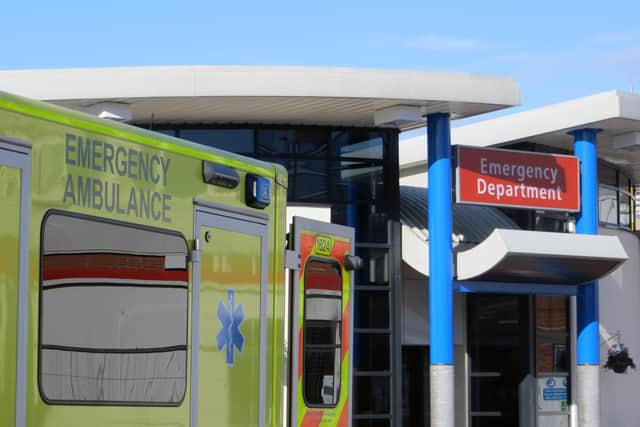NHS: Urgent and emergency care worse than it was in 2018, CQC survey suggests
and live on Freeview channel 276
Patients are having a worse experience with NHS urgent and emergency care than they were in previous years, according to a new survey from the healthcare watchdog.
A survey of more than 36,000 people who used NHS urgent and emergency care services in September 2022 found that while patients remained broadly positive about their interactions with staff, this year’s results show a decline in positivity for every question asked.
Advertisement
Hide AdAdvertisement
Hide AdPeople surveyed who had attended A&E were more likely to report a negative experience of care if they identified as frail, if they were disabled, if their visit lasted longer than four hours or if they had been to the same A&E for the same condition within the previous week.


The proportion who said they waited more than four hours to be examined in a type one service (A&E) more than trebled to 17 per cent - up from four per cent in 2020 and five per cent in 2018.
57 per cent of A&E patients also said that they were ‘definitely’ involved as much as they wanted to be in decisions about their care and treatment in 2022 - compared to 63 per cent who said this in 2020 and 65 per cent who said this in 2018.
Dr Sean O’Kelly, CQC’s chief inspector of healthcare, said: “These latest survey responses demonstrate how escalating demand for urgent and emergency care is both impacting on patients’ experience and increasing staff pressures to unsustainable levels. Staff are working extremely hard amidst challenging circumstances.
Advertisement
Hide AdAdvertisement
Hide Ad"It remains extremely concerning that for some people care is falling short, and we cannot afford to ignore the long term decline shown in relation to issues like waiting times, information provided when people leave to go home, access to pain relief and emotional support.
"The rise in demand for urgent and emergency care and challenges staff face in meeting that demand is a symptom of a much wider capacity and access issue across health and social care. Urgent and emergency care requires the support of the whole hospital and the surrounding local health and social care system.
"Without that support and without a more co-ordinated approach, more and more people whose needs can be better met by other services will continue to seek help at emergency departments and urgent care centres."
Comment Guidelines
National World encourages reader discussion on our stories. User feedback, insights and back-and-forth exchanges add a rich layer of context to reporting. Please review our Community Guidelines before commenting.
